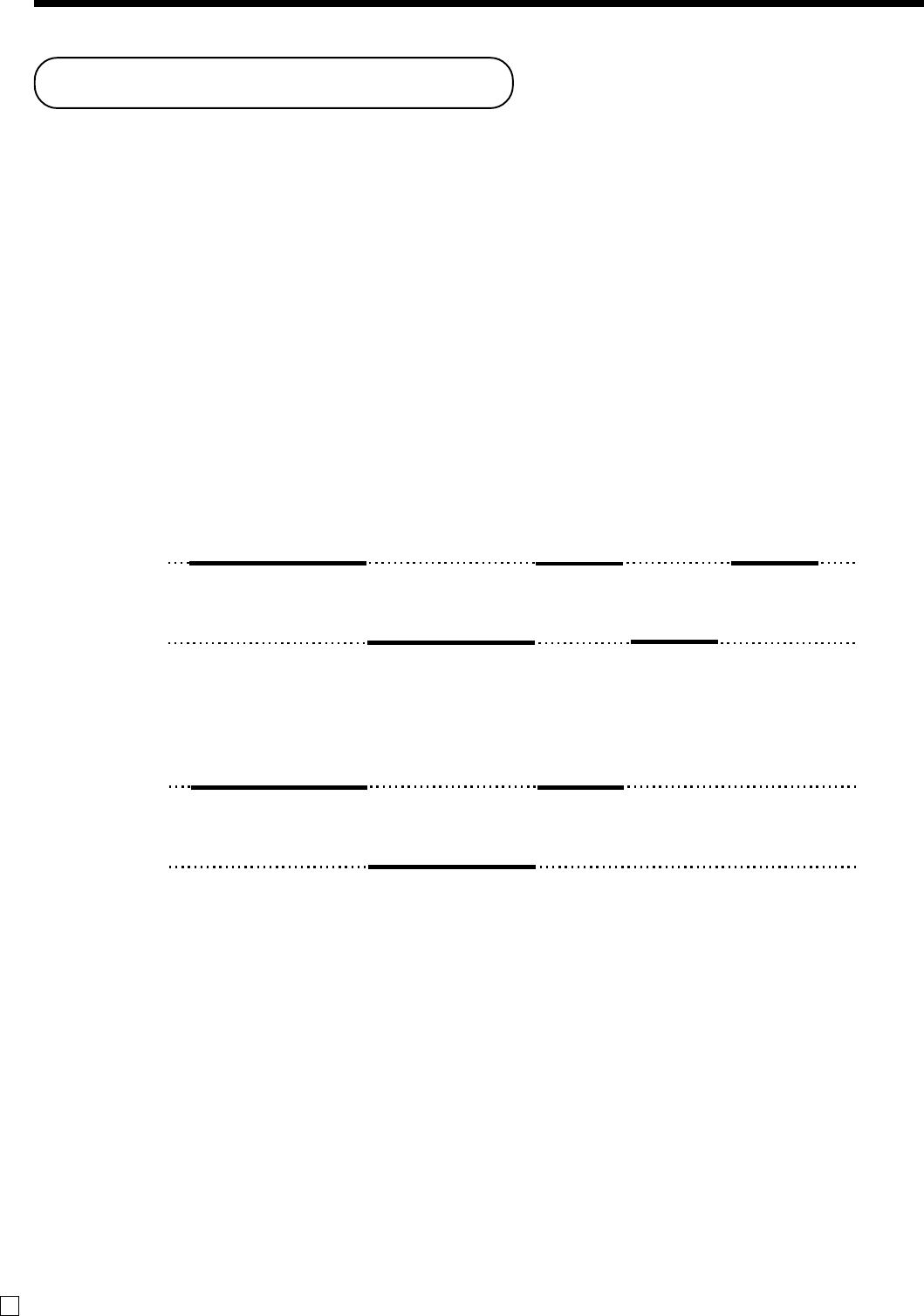
Advanced Operations
52
E
Clerk interrupt function
There are two types of clerk interrupt function, illustrated by Procedure 1 and Procedure 2 below.
• In Procedure 1, each clerk possesses a unique clerk interrupt buffer, and so the clerk interrupt function gives
each individual clerk the ability to perform an independent registration operation. In this case, each clerk is
individually linked to a unique clerk interrupt buffer.
• In Procedure 2, multiple clerks use the same clerk interrupt buffer, and so a single clerk interrupt operation
(clerk change during registration) can perform any registration that is in progress. In this case, multiple clerks
are linked to a single clerk interrupt buffer.
In this procedure, “Allow clerk to open check No. belonging to another clerk” program is necessary.
Note the following important points concerning the clerk interrupt function.
• The register must be programmed to allow use of the clerk interrupt function.
• In the REG, REF, and REG– modes, clerks can be change while a transaction is in progress, making it
possible for multiple clerks to simultaneously perform registrations using a single register.
For example, if clerk 1 is interrupted while registering a transaction, clerk 2 can use the same machine to
register a different transaction. Then clerk 1 can continue the original registration from the point where it was
interrupted.
Procedure 1
Clerk 1
Clerk 2
Sign on
Sign on
Sign on
Sign on
Sign on
Registration A Post receipt AFinalization A
Finalization BRegistration B
<NEW BALANCE>*
<NEW BALANCE>*
<CASH>
<CASH>
<RECEIPT>
* Omissible
Procedure 2
NOTES
• A cancel operation can be performed during registration by either of the clerks. When clerk 1 signs back on
(after being interrupt by clerk 2), the cancel operation cancels only the items registered after signing back on
(only this receipt) or from the top of the transaction. This is selectable by the key program.
• A <NB> key must be programmed in order to use clerk interrupt.
Clerk 1
Clerk 2
Sign on
Sign on
Sign on
Registration A Finalization A + B
Registration B
<NEW BALANCE>*
<NEW BALANCE>*
<CASH>
* Omissible


















